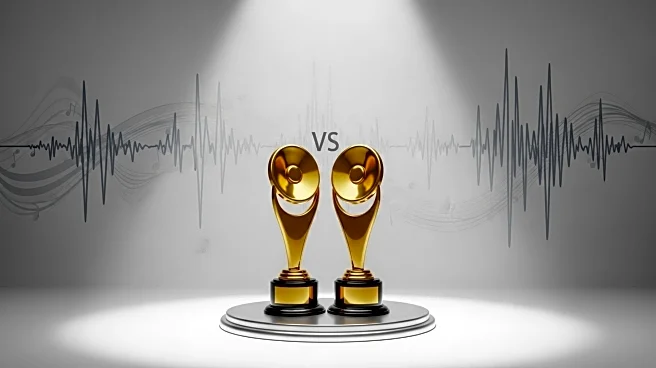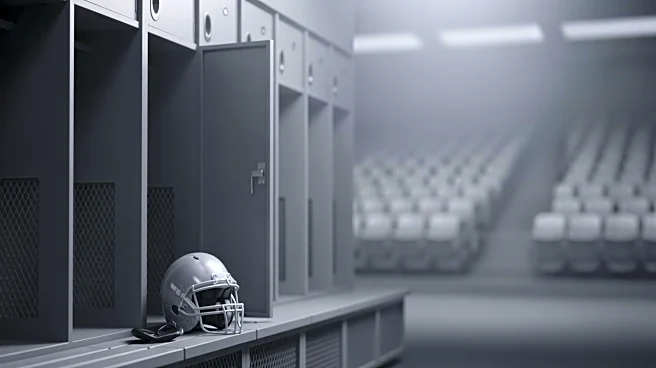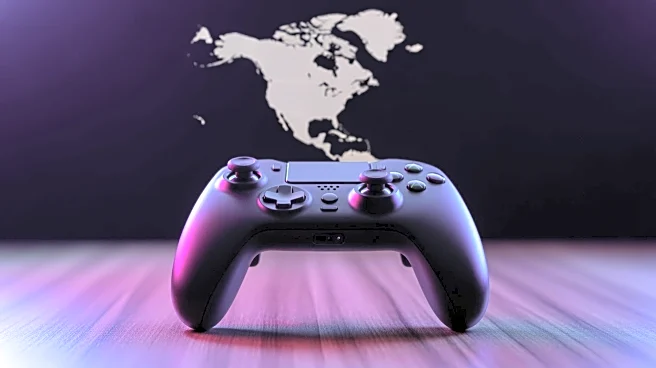What's Happening?
Nicki Minaj and Cardi B have reignited their longstanding feud through a series of social media exchanges. Minaj criticized the sales of Cardi B's new album, 'Am I the Drama?', which was released on September 19. In since-deleted posts on X, Minaj alleged that Cardi B inflated her album sales and mocked her appearance, suggesting she underwent surgery to resemble Minaj. Cardi B responded by questioning Minaj's focus on her album and suggested Minaj should compare herself to artists like Rihanna, Taylor Swift, and Drake, who started their careers around the same time as Minaj. The feud between the two rappers dates back to 2018, including a physical altercation during New York Fashion Week.
Why It's Important?
The public feud between Nicki Minaj and Cardi B highlights the competitive nature of the music industry, particularly among female rappers. Such disputes can influence public perception and fan loyalty, potentially impacting album sales and endorsements. Minaj's call for a boycott of companies associated with Cardi B could have financial implications for both artists and the brands involved. The exchange also underscores the role of social media in amplifying celebrity conflicts, which can affect the artists' reputations and relationships within the industry.
What's Next?
The ongoing feud may lead to further public exchanges between Minaj and Cardi B, potentially involving other artists and industry figures. Minaj's call for a boycott could prompt responses from companies and fans, influencing brand partnerships and collaborations. Both artists may continue to leverage social media to address their grievances, which could result in additional public statements or diss tracks. The situation may also prompt discussions about the impact of celebrity feuds on mental health and professional relationships.
Beyond the Headlines
The feud between Minaj and Cardi B raises questions about the ethical implications of public disputes and their impact on mental health. The use of personal attacks and involvement of family members in the exchange highlights the potential for such conflicts to escalate beyond professional rivalry. The situation also reflects broader cultural dynamics within the music industry, including issues of representation and competition among female artists. The public nature of the feud may influence how artists navigate conflicts and maintain their public image.









